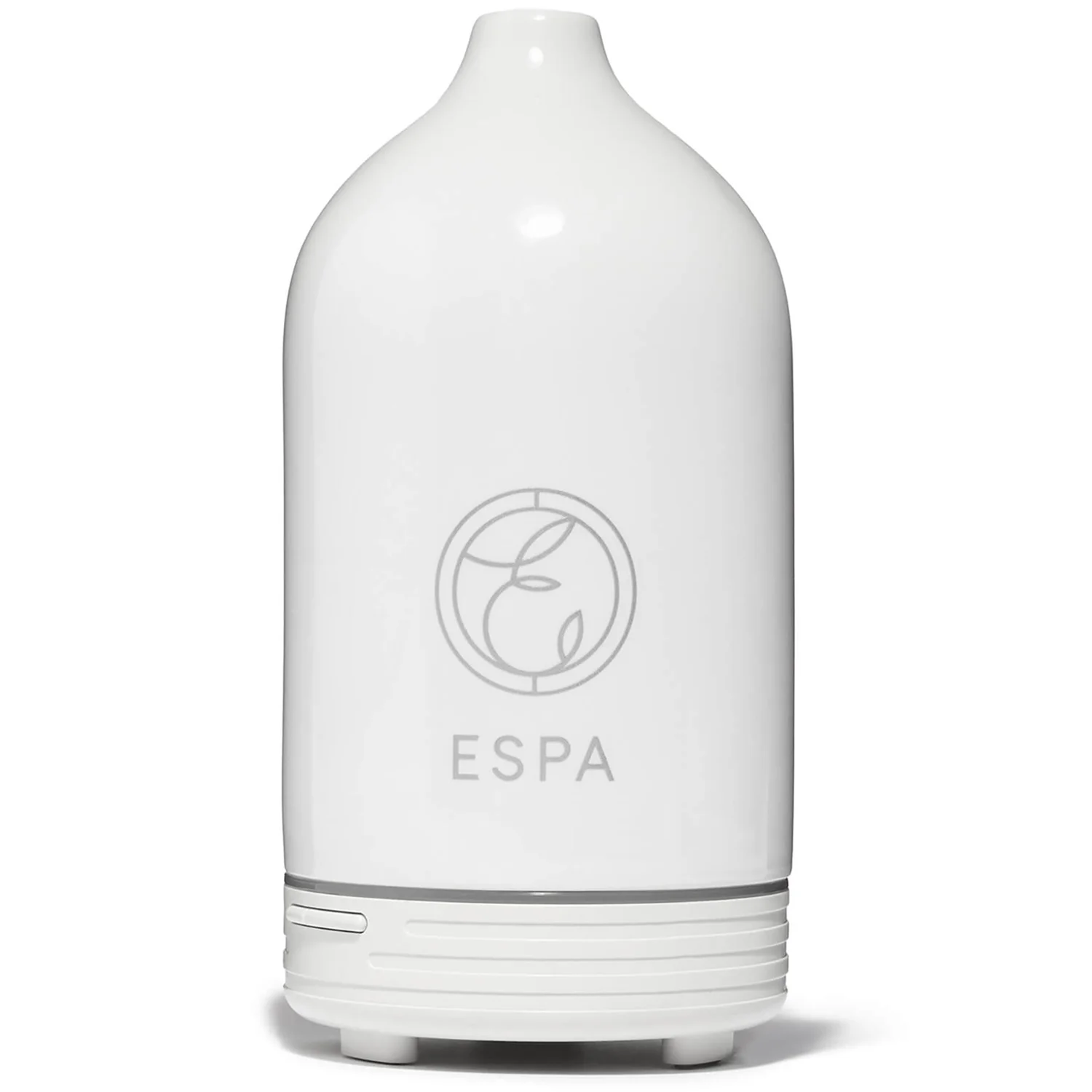How to make a hallway smell incredible without candles - 7 ways to gently fragrance your entranceway
Go flame-free to safely scent your entryway
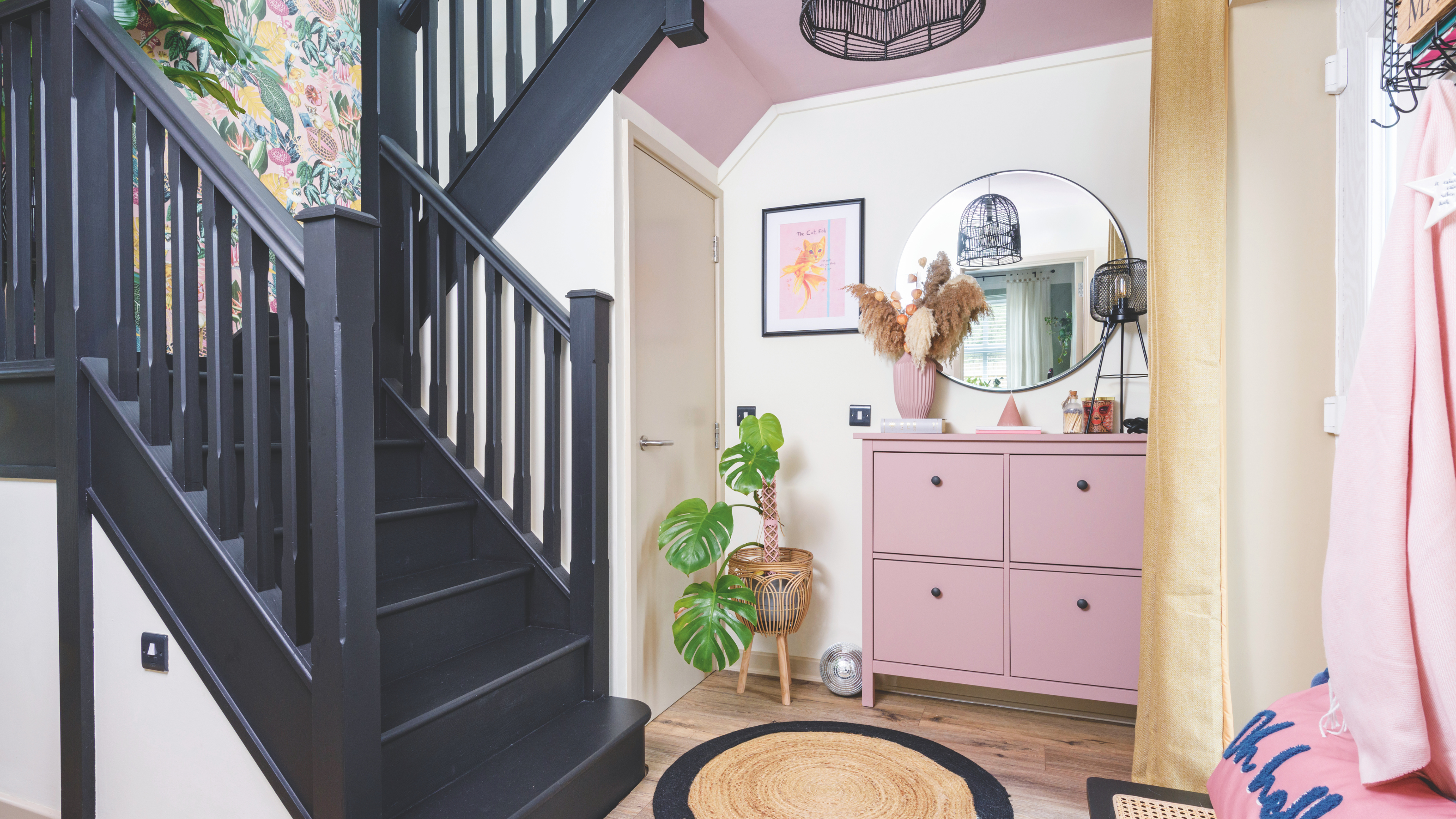

Everyone loves kicking back in the evening with a scented candle on the go for a cosy, downtime vibe, but in a hallway they're not a practical option. It’s not as if you can stop in the middle of preparing to leave and light one, and there’ll be no scent ready to greet you when you return. Plus, obviously, naked flames and high levels of foot-traffic are not a safe combination. However, there are plenty of other ways you can make a hallway smell nice without candles.
Home fragrance can be a game-changer in functional spaces like the hallway. Hallways can be a stressful place when you’re running late and can’t find your keys/purse/phone or the kids are crashing about with shoes, backpacks and PE kits scattered everywhere. The best fragrances to scent your hallway can change the mood of this spot into something energising, or a calming and soothing retreat welcoming you home after a hard day.
The transition from tense, and frantic into relaxed and positive starts here with these smart tricks from fragrance experts to scent a hallway, no candles involved.
1. Refresh carpeting, rugs and mats
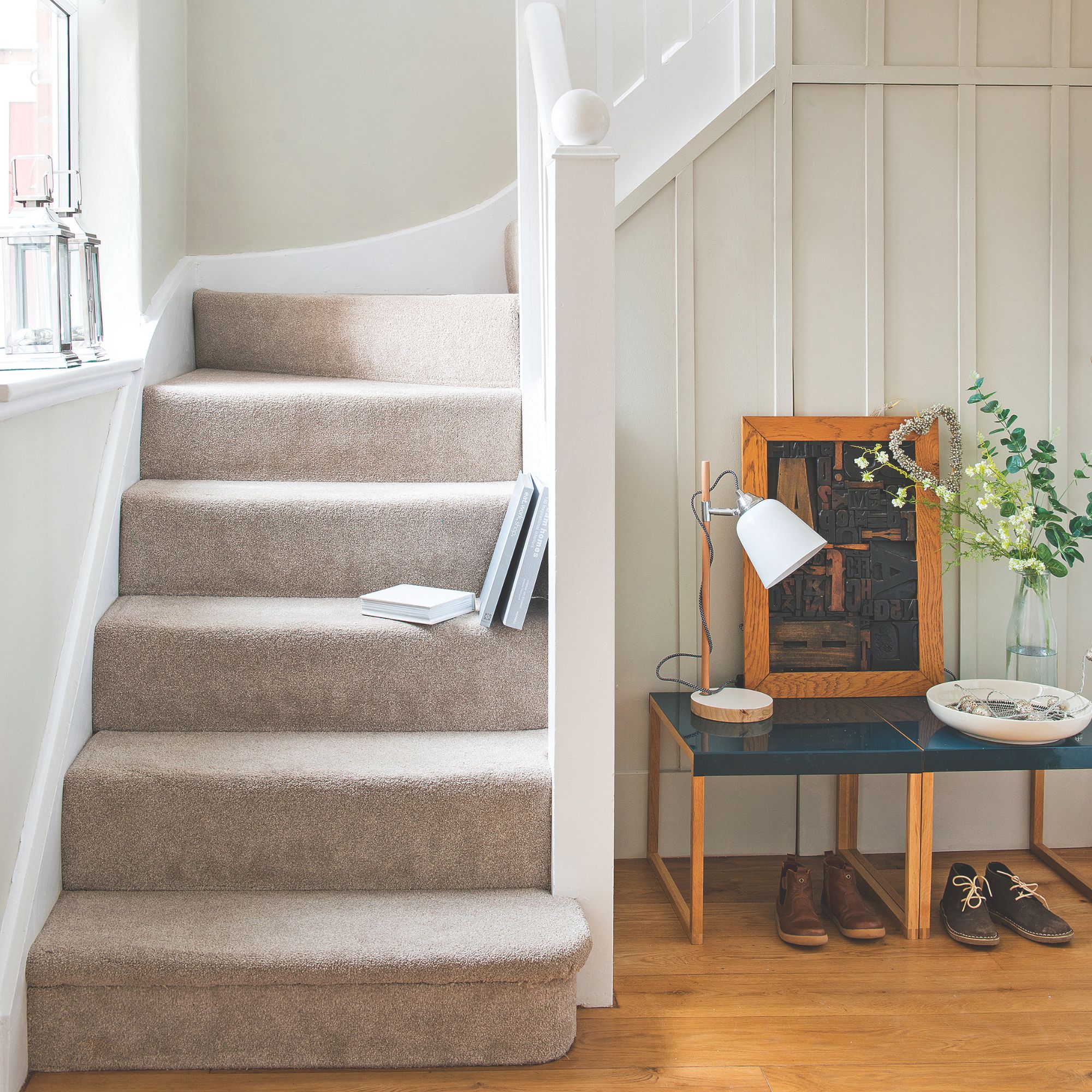
The first step to a fresh-smelling hallway is to find the source of any nasty whiffs and remove them. Sweaty trainers often get the blame, but the real culprit might be hiding in plain sight… on the floor.
Liam Cleverdon, flooring expert at Flooring King, explains: ‘Hallways experience a lot of foot traffic and dust, dirt and debris accumulate. That dirt and moisture become trapped in the fibres, resulting in an unpleasant smell.’
Liam's trick for how to clean a carpet without a machine is to deodorise your carpets naturally: ‘Baking soda and vinegar are excellent cleaning solutions for carpets and rugs. Sprinkle on the baking soda, spritz with diluted white vinegar and leave to dry before vacuuming.’
2. Use beautifully fragranced cleaning products

Ryan McSorley, co-founder of neat, says, ‘The products you choose make all the difference. Skip harsh chemicals and bleach that can irritate and harm, and instead opt for sustainable cleaning solutions with modern, refreshing scents.
Get the Ideal Home Newsletter
Sign up to our newsletter for style and decor inspiration, house makeovers, project advice and more.
‘Naturally derived ingredients, or blends incorporating them, offer a more innovative and eco-conscious way to fragrance cleaning products. Choose non-toxic scents that are gentle on the nose and the planet, ensuring a healthier and more sustainable environment for your home.
‘I always recommend using fragrances that strike a balance between freshness and warmth to create a welcoming hallway. Citrus notes like lemon, orange, or bergamot are perfect for an uplifting and inviting atmosphere – they’re bright, clean, and energising.
‘For a cosier feel, vanilla blends wonderfully with spices like cinnamon or clove, offering a warm, homely vibe. Woody notes, such as sandalwood or cedar, add sophistication and depth, while amber or musk creates a soft, enveloping warmth.
‘Florals like jasmine or lavender can also work beautifully, especially when paired with grounding elements like tonka bean or sage. If you want to reflect the seasons, opt for spiced apple or pine in winter, and fresh linen or green tea in spring.’
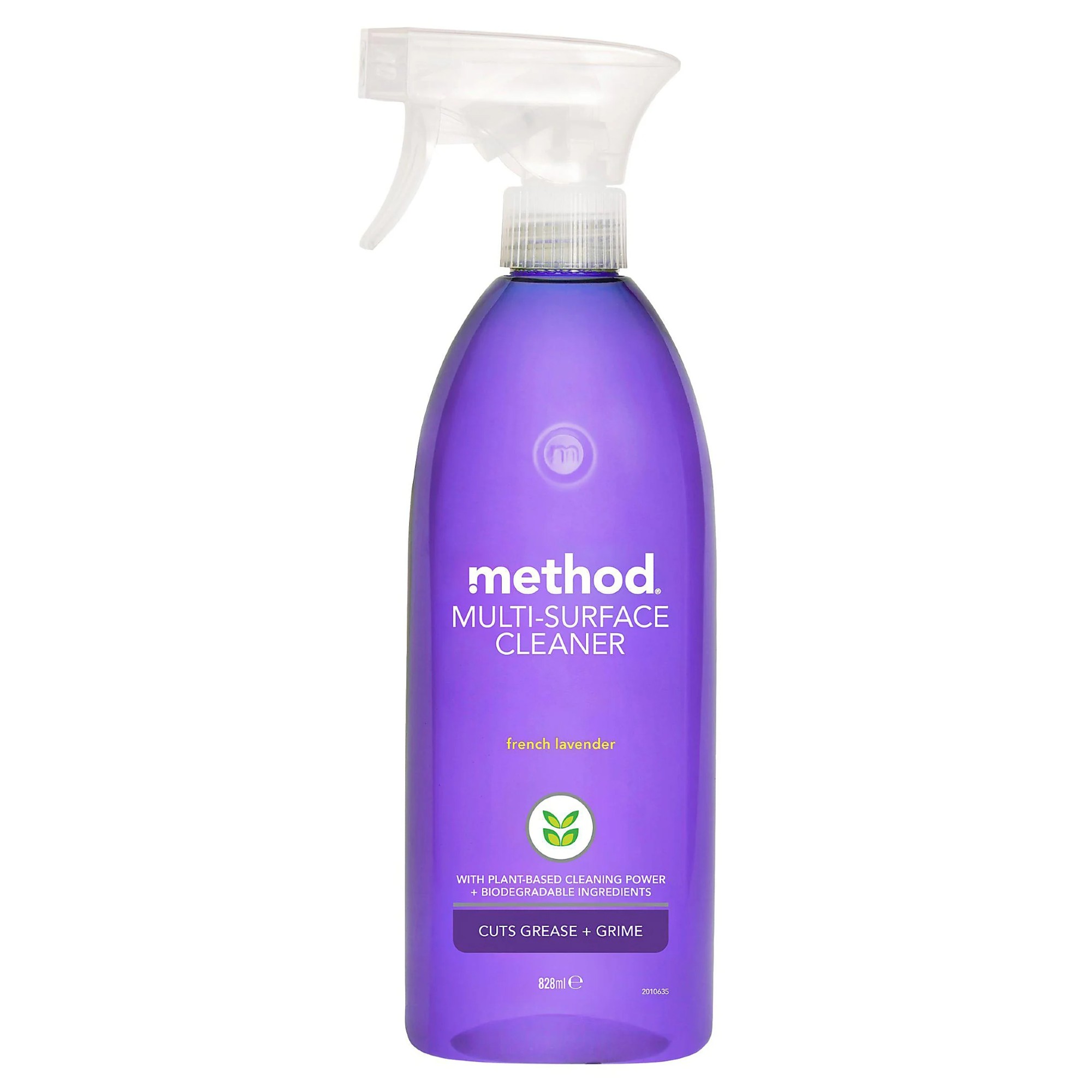
Method uses essential oils in its cleaning products and developed some stunning scents for your home
3. Arrange a vase of scented flowers
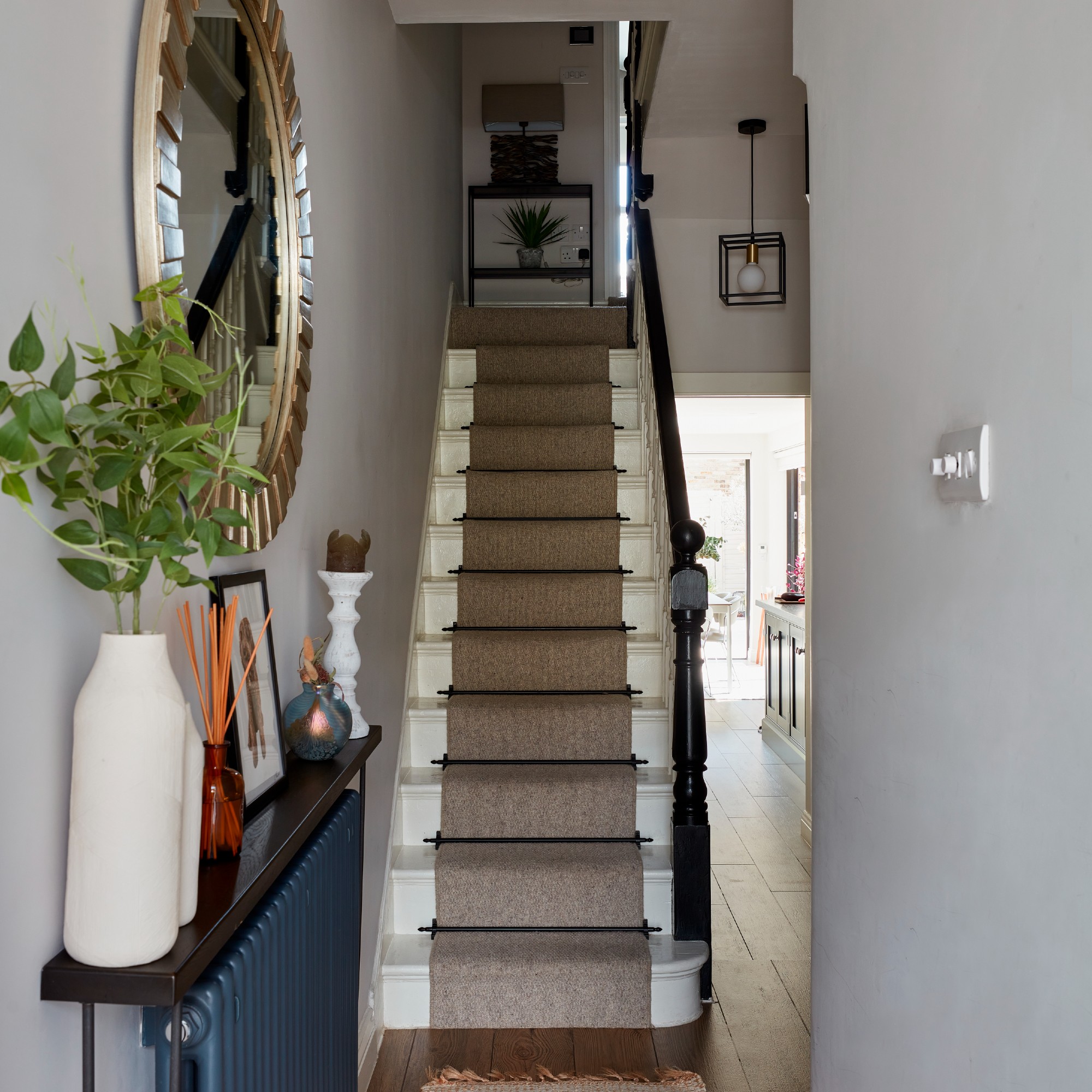
If you have the space, a vase of flowers on a hallway console table will add a natural burst of fragrance. Or if you are working with small hallway ideas you could mount a wall vase, Etsy has some lovely options.
‘Freesias have the most gorgeous scent, they are beautifully fragrant without being overpowering,' recommends Dani Turner, owner of online florist Bunches. 'Of course, if you want a stronger scent, a vase full of Stargazer lilies will do the job. They are a little like Marmite in the flower world – some love the scent and some do not!
'Longiflorum lilies also offer a lovely welcoming scent that is similar to jasmine. There are some lovely scented plants, too: a jasmine plant is subtle and beautifully Mediterranean, whereas a hyacinth bulb plant offers a powerful, heady scent.’
4. Use essential oils

Your hallway fragrance can be more than just scent. Choose pure essential oils and benefit from their aromatherapy effects. Kirsty Summerbell, aromatherapist at Sage & Bellflower has these recommendations:
‘Sweet orange is my top choice for supporting calm, due to its uplifting top notes. It has a fresh yet warming scent, which also has a calming action to it.’
‘The best scent for welcoming you home is frankincense. It is often used in meditation as it helps to slow down your breathing and help you switch off.’
You don’t need an oil burner – make a simple air freshener by adding a few drops of the oil to some bicarbonate of soda in a jar. Cover the top with baking parchment secured with a rubber band, then poke holes in the paper to release the scent.
5. Make your own room spray
For a quick fragrance boost using your chosen essential oil, Kirsty Summerbell suggests mixing your own spray.
‘To make a room spray, add 20 drops of essential oil and an equal amount of polysorbate 20 (an emulsifier) to a 100ml atomiser bottle. Shake the bottle and fill with a floral water such as lavender.’
This is easy to make by steeping dried lavender flowers in boiled water, then straining them out – just like making loose-leaf tea.
‘The spray is ready to use,’ Kirsty warns, ‘but avoid contact with fabrics as certain essential oils may stain them.’
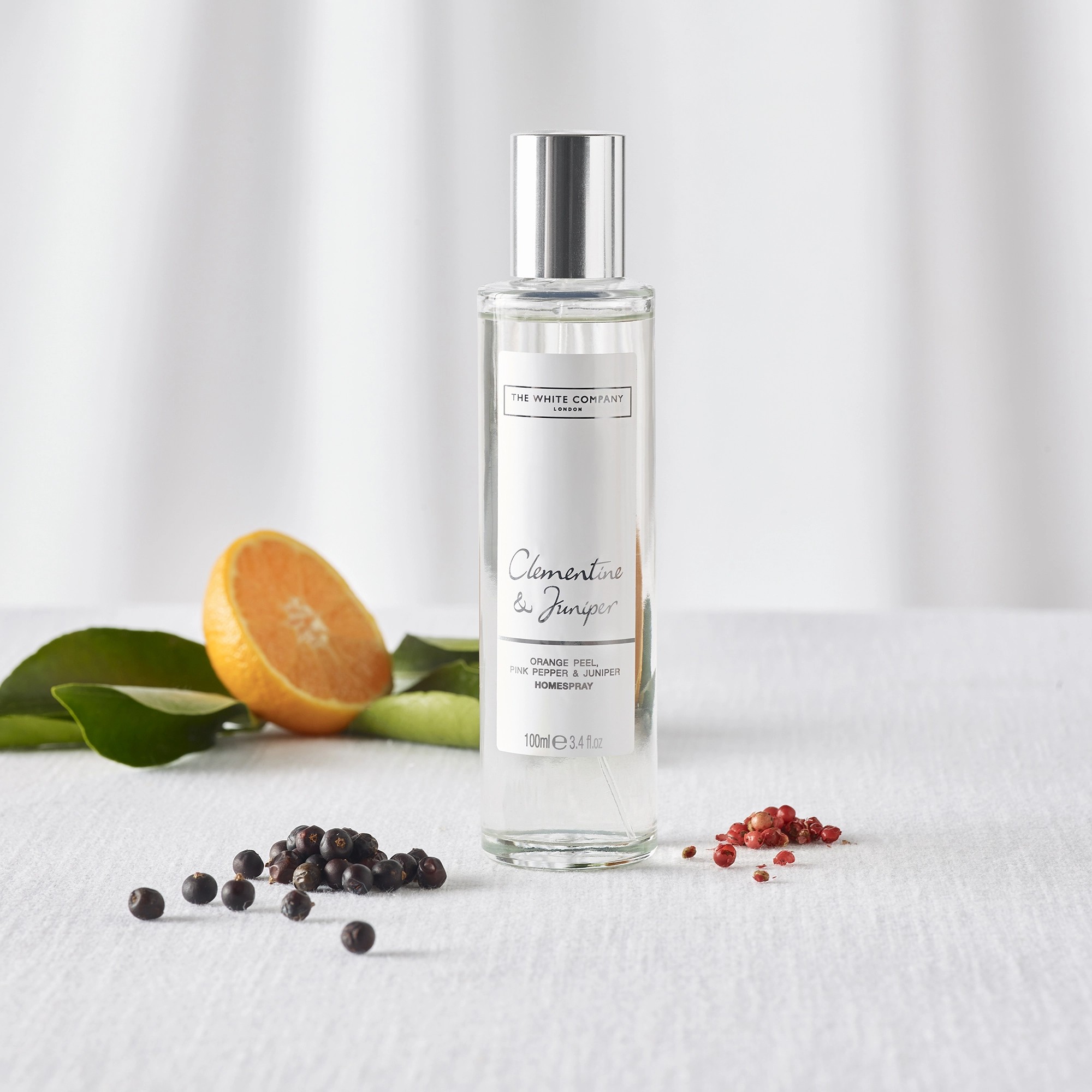
If you don't want to make your own, there are plenty of lovely home sprays you can buy like this one.
6. Style an aesthetic diffuser
These come in all types of shape and forms, including plug-ins, vapourisers, reed diffusers and even ceramic discs you can hang on your coat rack. However, they are not all created equal. Go for a model that throws out scent at a big enough distance to fill your hallway.
The home fragrance buyer for Next explains that ‘the most common type is a liquid diffuser with long reeds, but these aren’t efficient in draughty areas and you need to turn the reeds regularly for optimum fragrance diffusion. However, it’s possible to make your own if you buy a reed diffuser refill and some reeds to use with a pretty bud vase, bottle or jar.
For a hallway, I’d say that a reedless diffuser is best as they are spill-proof, easy to use and safe for pets and children. They’re also really stylish. The ultrasonic type can be used with a huge array of essential oils. It’s a great way to switch up your home fragrance as the seasons change.’
7. Use potpourri
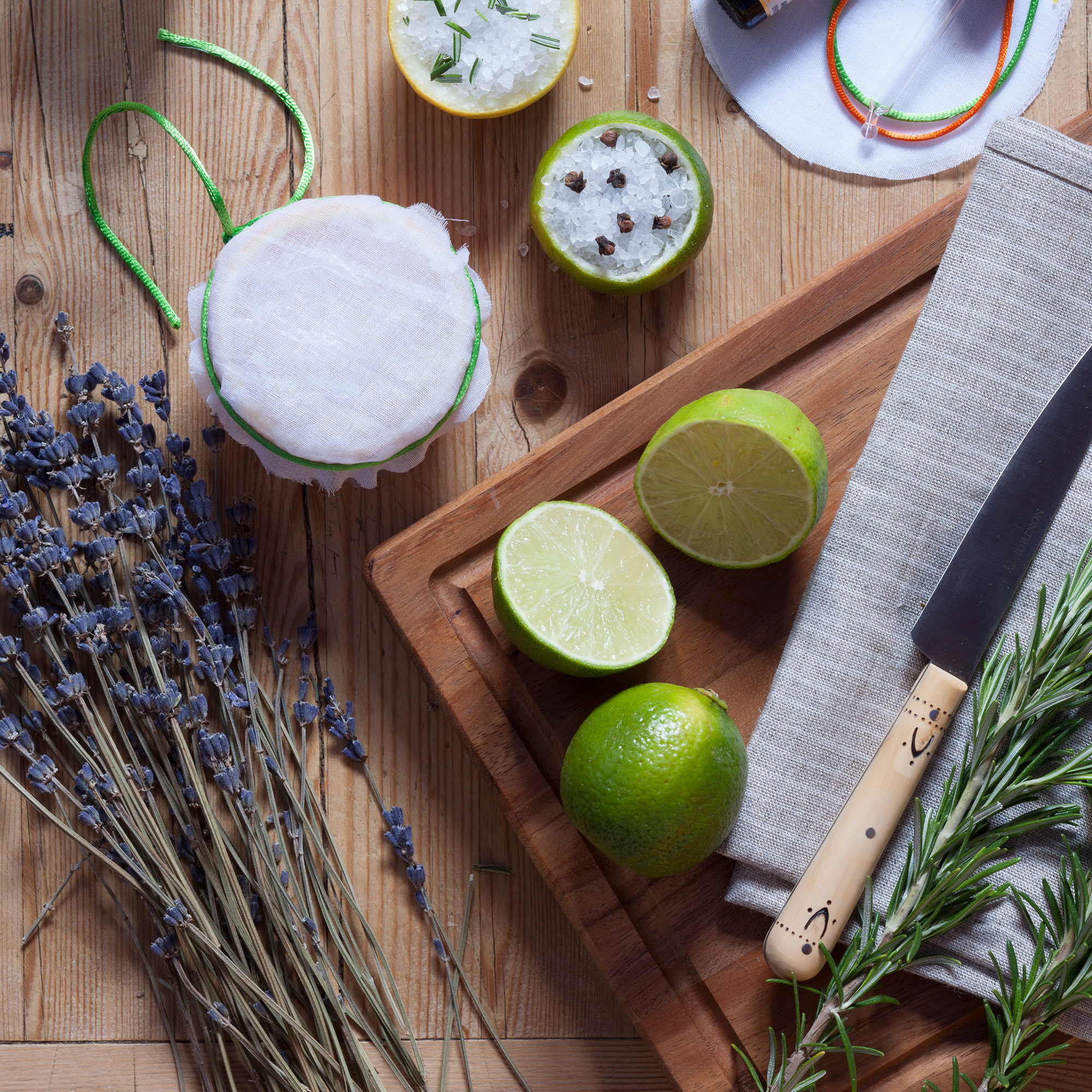
Bowls and baskets of scented dried flower petals were a common sight in the 1980s but lost out to the scented candle boom in recent decades.
Ruth Ridley, who sells dried flowers online at Daisy Gifts and blogs about them at driedflowercraft.co.uk, says, ‘The benefits of using dried flowers to scent your home are that they’re natural, decorative and can be composted once you’ve finished with them.’
‘Lavender is by far the strongest naturally scented flower once dried, and the loose grains tend to have a stronger fragrance than bunches. Lavender grains can be used on their own for potpourri with nothing added.
‘You can make your own potpourri by mixing decorative dry petals, leaves and flower heads with a few drops of oil such as rose or lemon. How long the scent lasts depends on the type of oil you use. Aromatherapy essential oils are fully natural but might only last a few days, whereas home fragrance oils are usually synthetic and have been developed for a good strong fragrance which will last a few weeks.’
There are many safe and eco-friendly ways to make your home smell incredible. Whichever method you choose, this small change will boost your enjoyment of your home on a daily basis.

Vanessa Richmond has been a freelance writer, editor and editorial consultant since 2021. Her career in magazines began in 1998 and, apart from a four-year stint at women’s lifestyle magazine Red, it has been spent working on interiors titles including House Beautiful, Country Homes & Interiors and Style at Home. She is a former editor of Ideal Home, Country Homes & Interiors and Style at Home magazines. She has also worked for House Beautiful and Red. During her 25 years as a journalist, she has been a sub-editor, columnist, deputy editor and editor. Now she combines freelance writing with being a secondary-school English teacher.
-
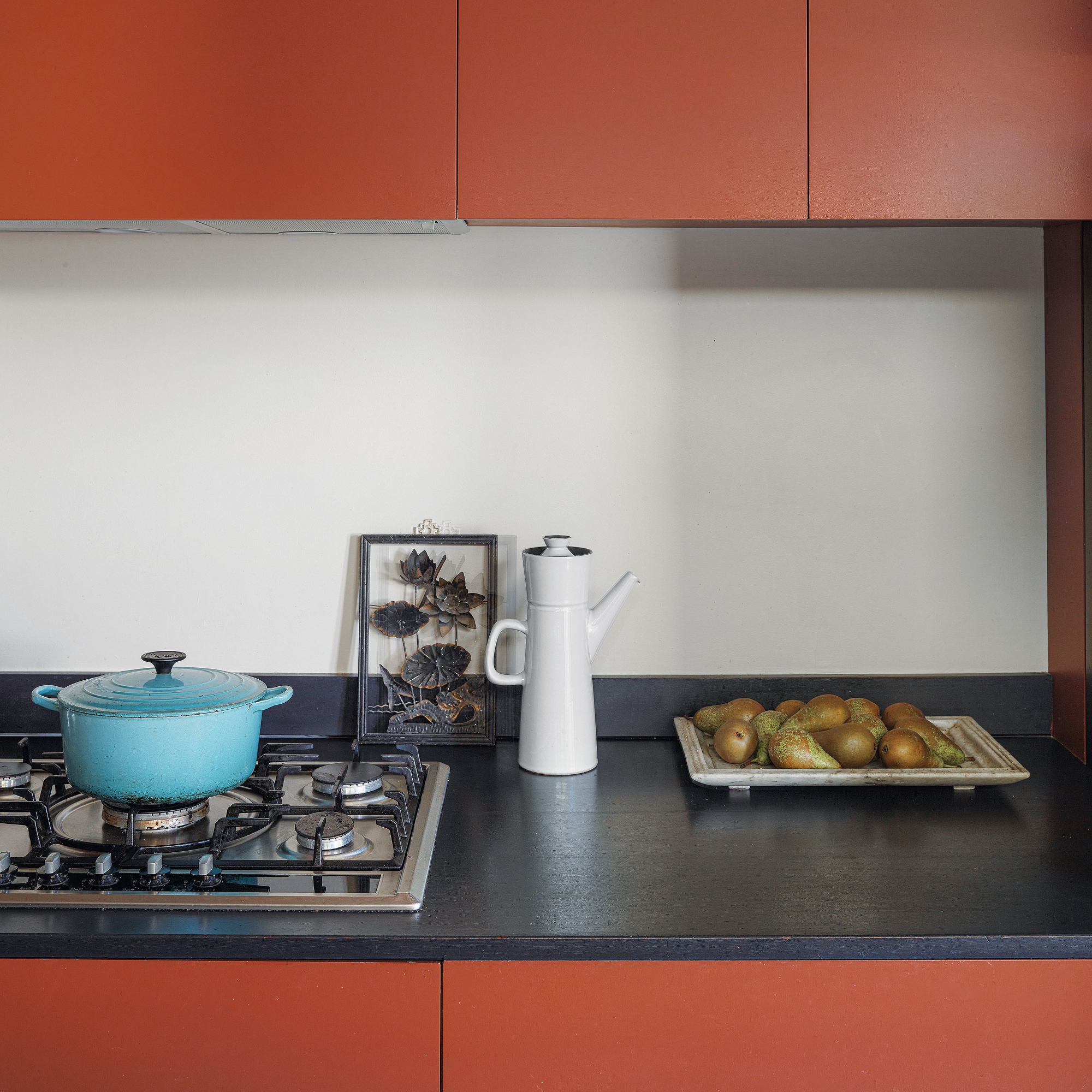 I’ve found a stunning £40 buy that rivals Le Creuset at Wilko - this casserole dish is a dead ringer for one of the most summery colourways
I’ve found a stunning £40 buy that rivals Le Creuset at Wilko - this casserole dish is a dead ringer for one of the most summery colourwaysYou just can't beat finding a great Le Creuset alternative
By Kezia Reynolds
-
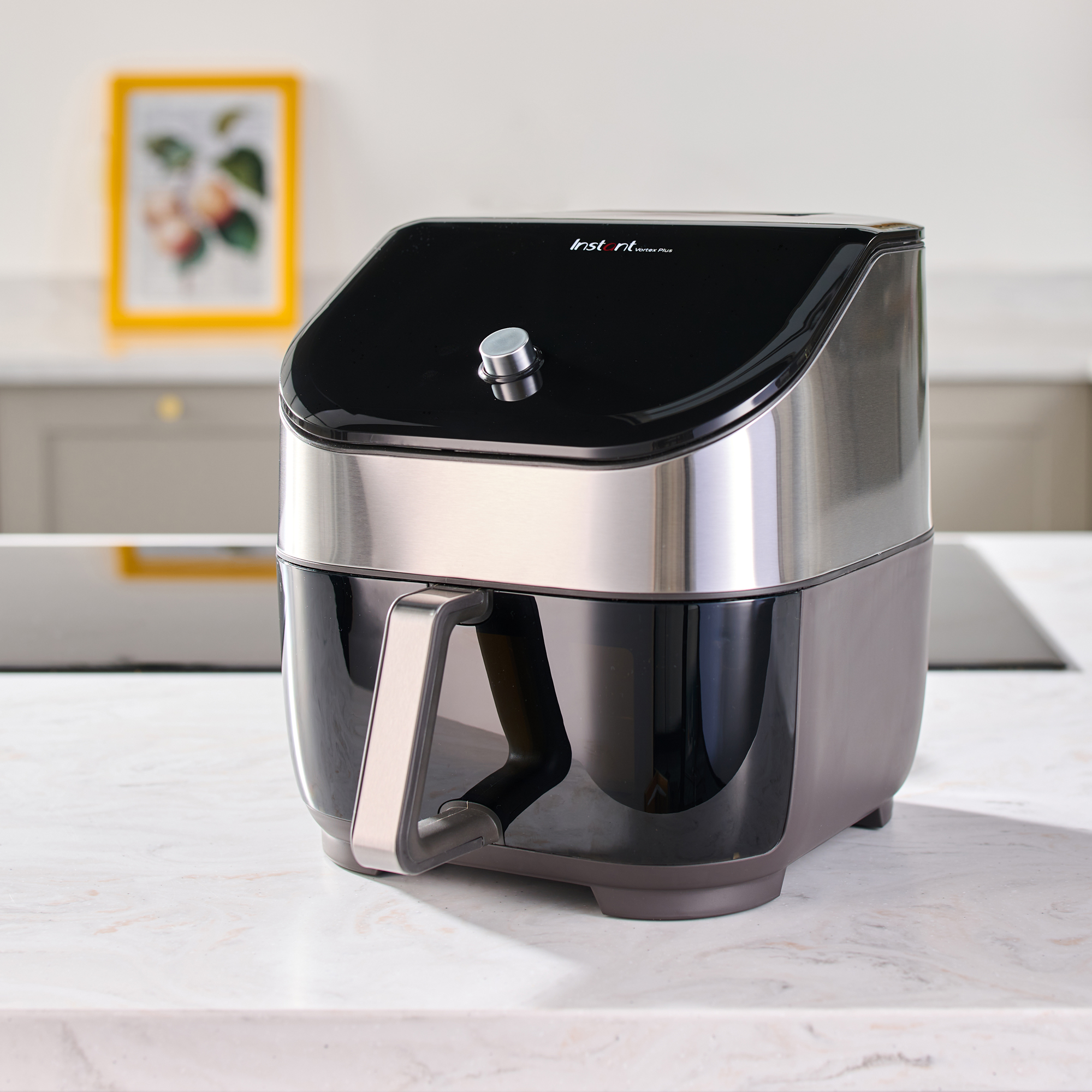 Should an air fryer be on display in a kitchen or hidden away? This is why I always keep my small appliances on the worktop
Should an air fryer be on display in a kitchen or hidden away? This is why I always keep my small appliances on the worktopAre you on team display or neatly hidden away? Share your opinion in the comments
By Rebecca Knight
-
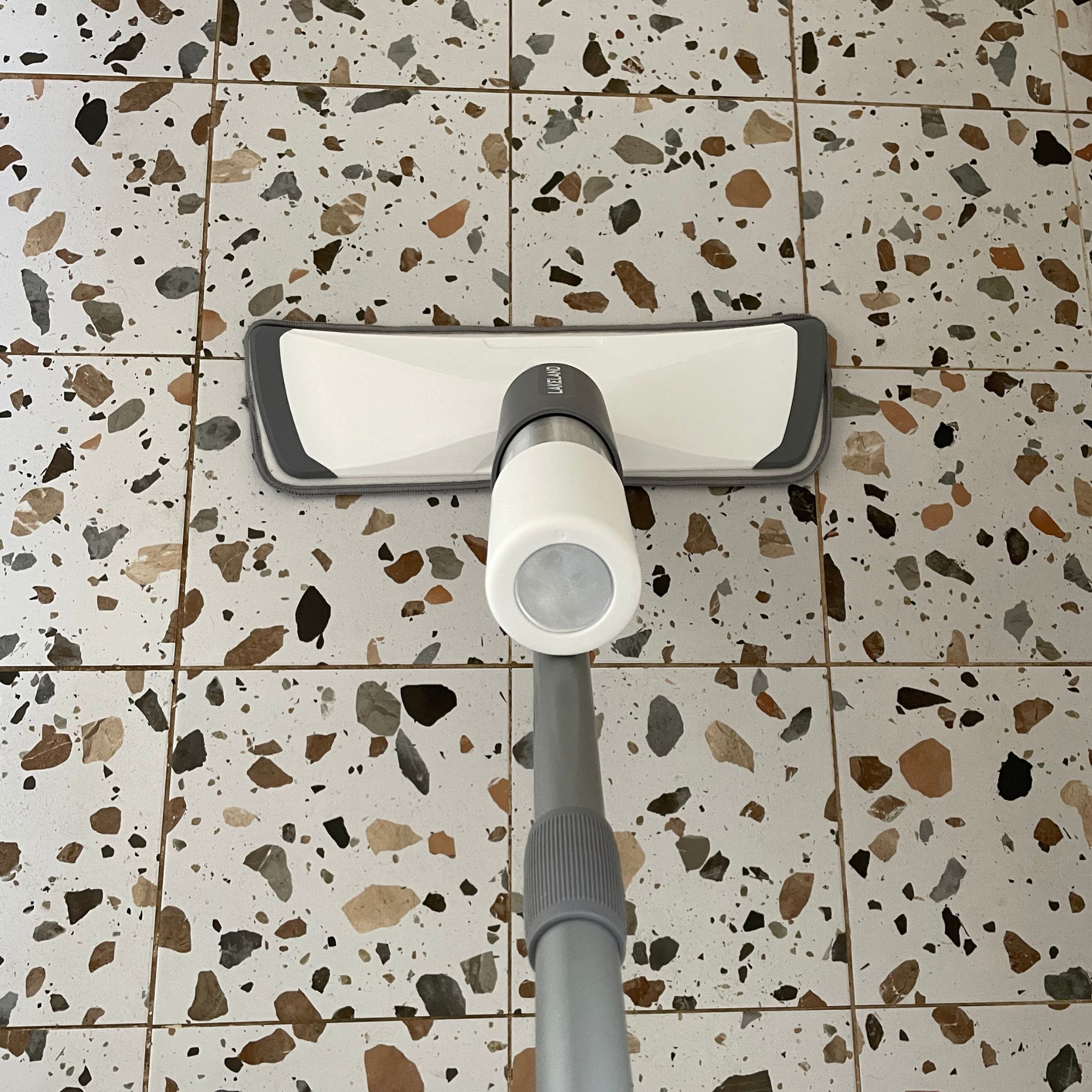 Experts warn that these 5 mopping mistakes are making your floors dirtier — and damaging your floors in the process
Experts warn that these 5 mopping mistakes are making your floors dirtier — and damaging your floors in the processThis is how to keep them clean and avoid costly damage
By Lauren Bradbury
-
 I’ve found a stunning £40 buy that rivals Le Creuset at Wilko - this casserole dish is a dead ringer for one of the most summery colourways
I’ve found a stunning £40 buy that rivals Le Creuset at Wilko - this casserole dish is a dead ringer for one of the most summery colourwaysYou just can't beat finding a great Le Creuset alternative
By Kezia Reynolds
-
 This beautiful mixing bowl is the unexpected star of so many kitchens – including Mary Berry's and the Bake Off tent
This beautiful mixing bowl is the unexpected star of so many kitchens – including Mary Berry's and the Bake Off tentThis earthenware bowl proves that you don't have to spend a huge amount for a classic kitchen addition
By Molly Cleary
-
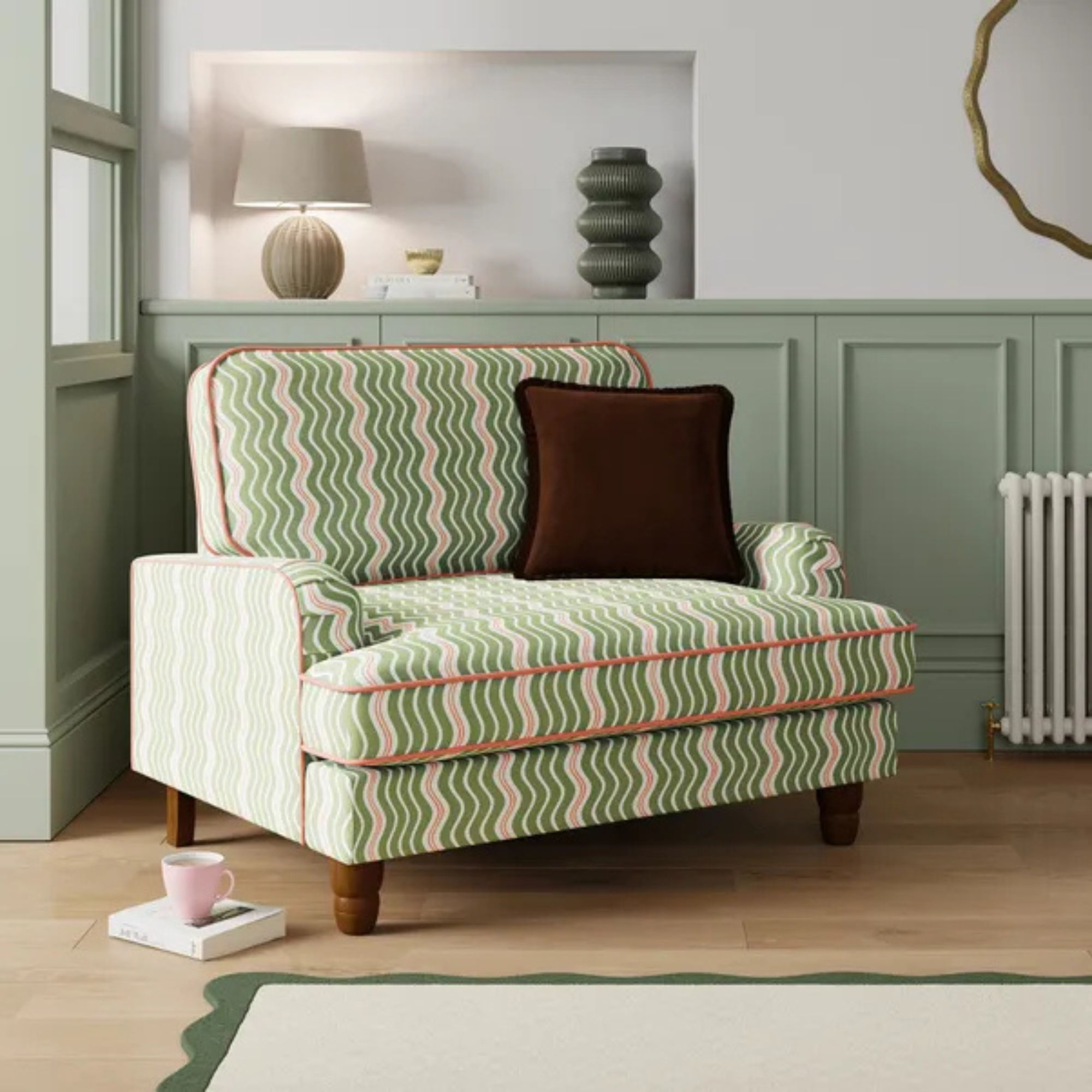 Dunelm has given its cult snuggle chair a new look - it's swapped classic stripes for another emerging pattern trend
Dunelm has given its cult snuggle chair a new look - it's swapped classic stripes for another emerging pattern trendI'm obsessed with this fresh new style
By Kezia Reynolds
-
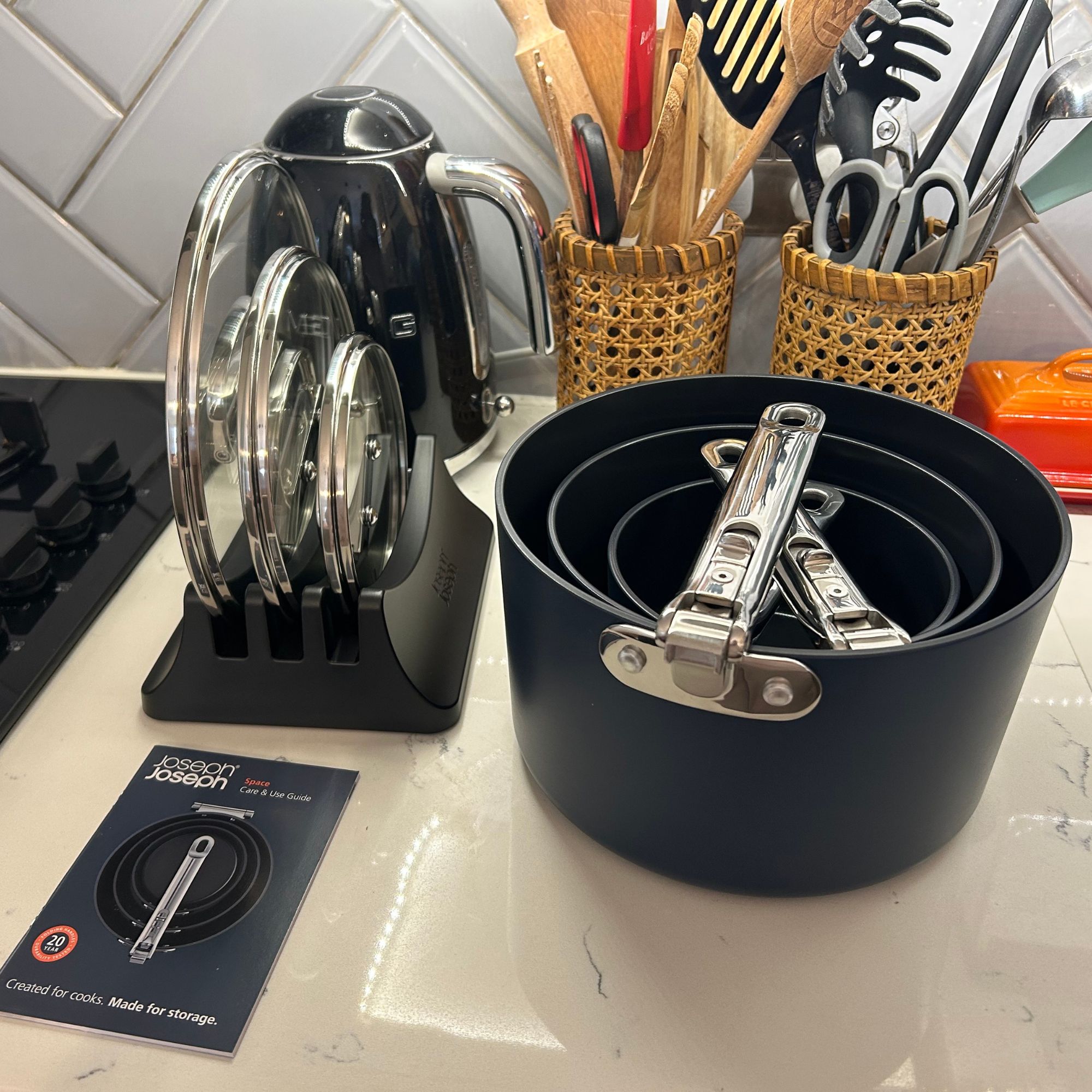 I tried Joseph Joseph's pan set with foldable handles – the space-saving design is just one of the many highlights
I tried Joseph Joseph's pan set with foldable handles – the space-saving design is just one of the many highlightsSmall kitchen? I tested this innovative Joseph Joseph space-savvy set which has foldable handles — and I loved it
By Annie Collyer
-
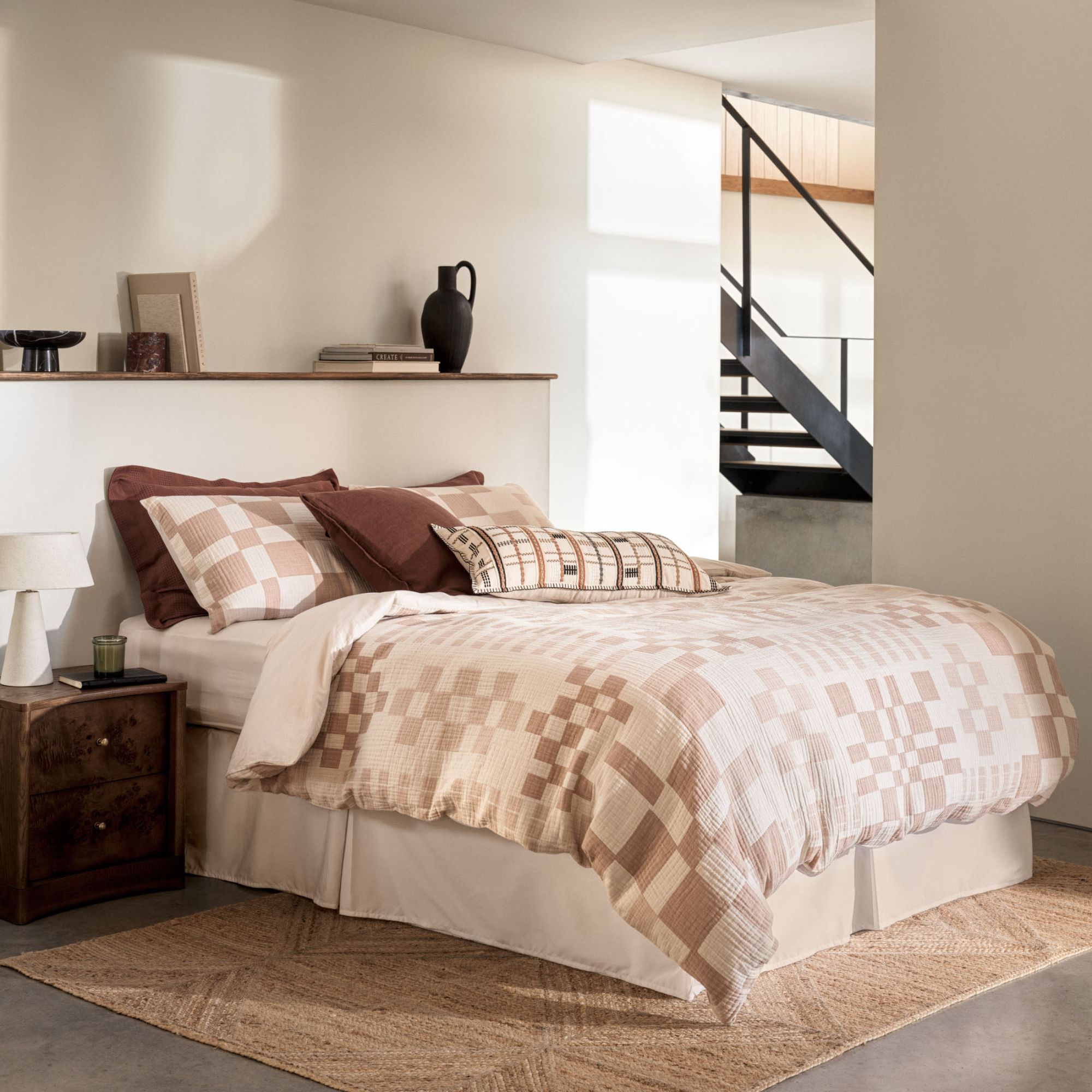 As a stylist, I spend hours looking for bedding for photoshoots, and I just spotted these 6 expensive-looking sets at M&S
As a stylist, I spend hours looking for bedding for photoshoots, and I just spotted these 6 expensive-looking sets at M&SGet a little luxury at a high-street price
By Laurie Davidson
-
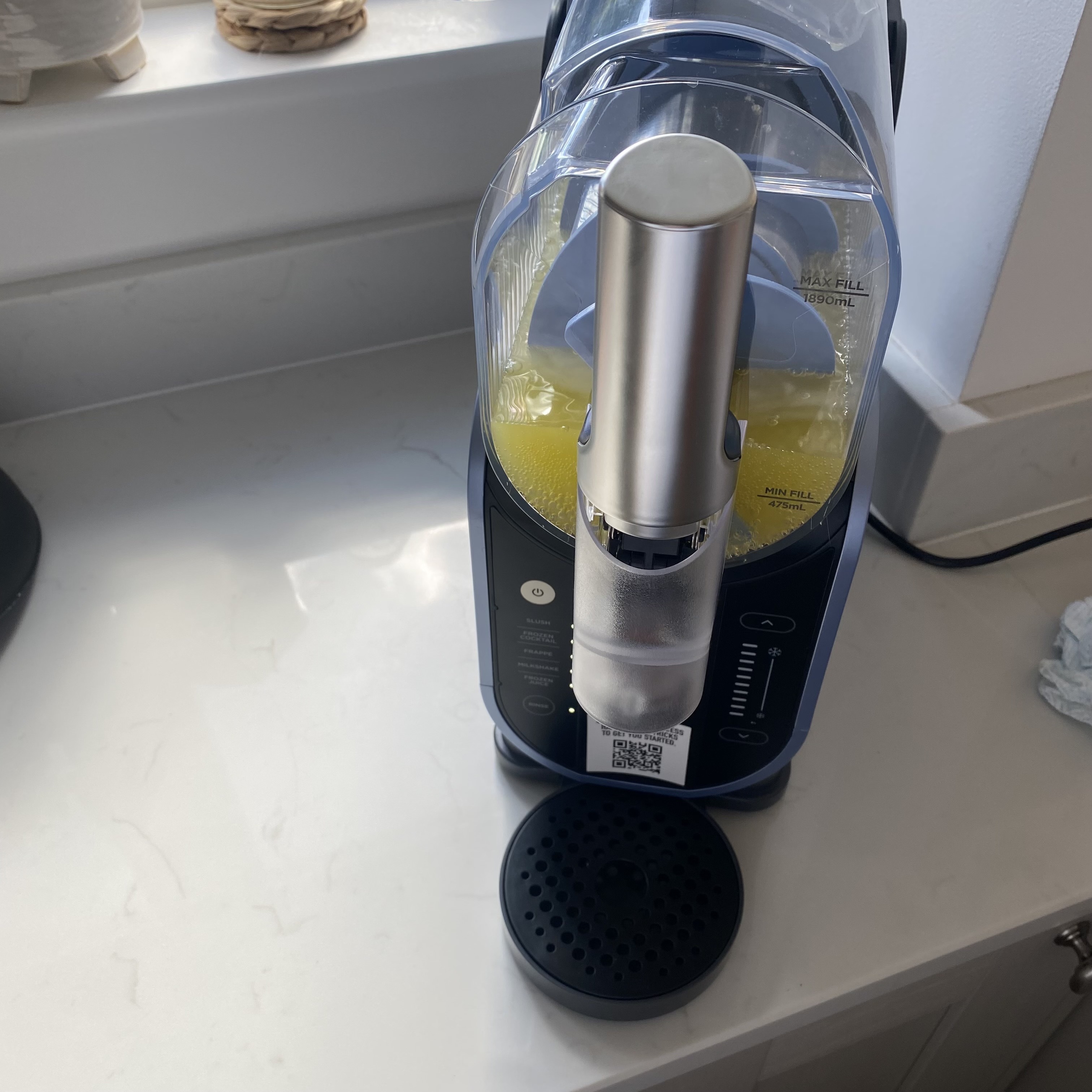 I've been waiting to try out the Ninja Slushi for months – this is what happened the first time I tried it
I've been waiting to try out the Ninja Slushi for months – this is what happened the first time I tried itThe Ninja Slushi is the stuff of dreams for summer entertaining
By Molly Cleary
-
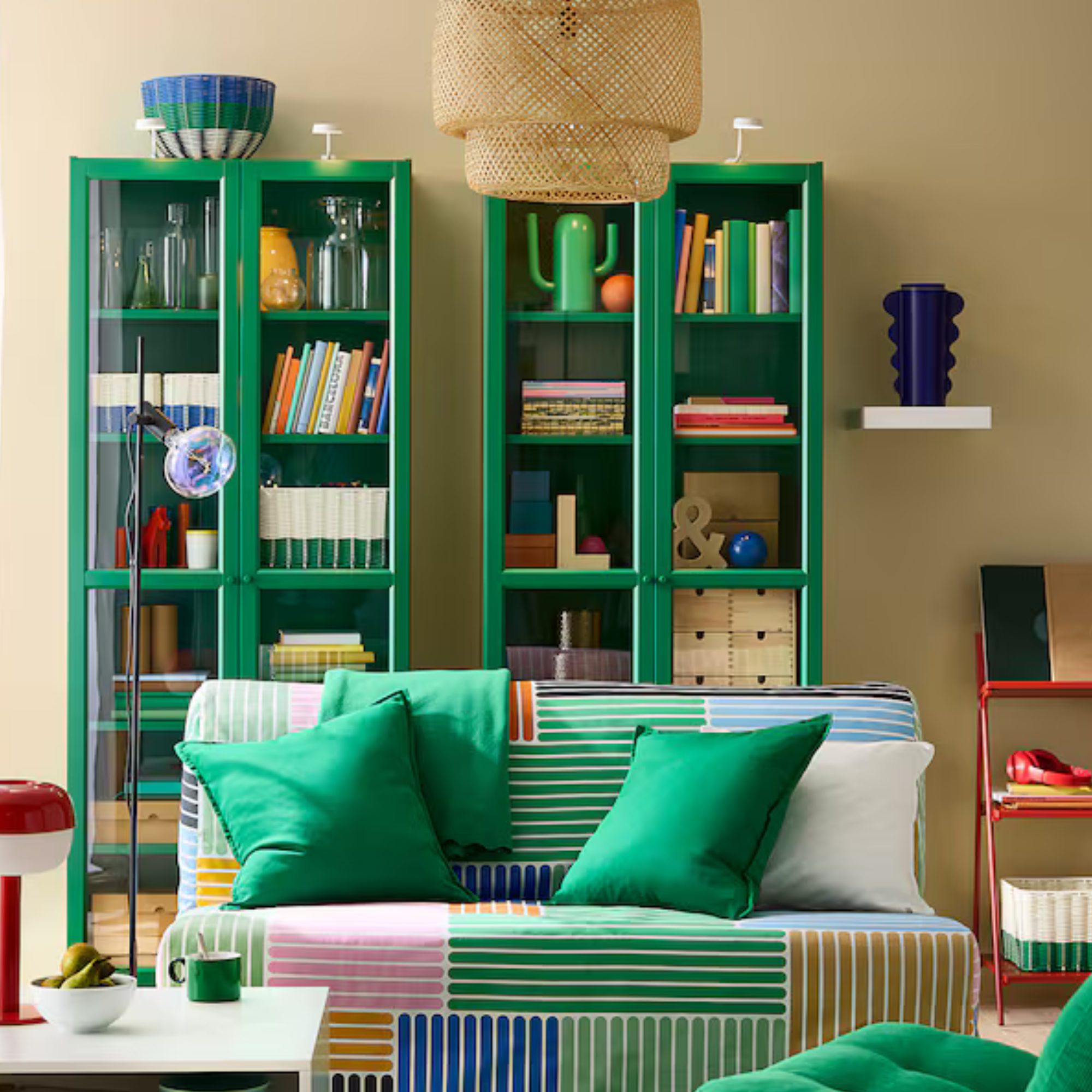 IKEA has drenched its BILLY bookcase in this year’s ‘it’ colour - but you’ll have to act fast if you want to get your hands on one
IKEA has drenched its BILLY bookcase in this year’s ‘it’ colour - but you’ll have to act fast if you want to get your hands on oneI'm obsessed with this gorgeous limited-edition colourway
By Kezia Reynolds
-
 My go-to Ninja coffee machine just had a major price drop. It's more affordable than I've seen it before
My go-to Ninja coffee machine just had a major price drop. It's more affordable than I've seen it beforeIt makes coffee shop quality achievable at home
By Molly Cleary
